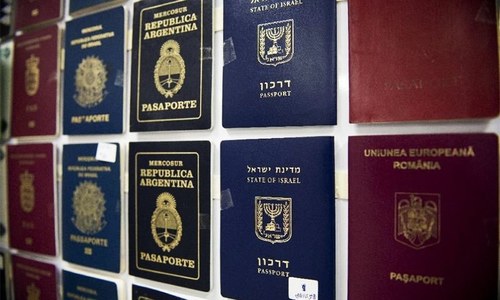LAHORE: The Lahore High Court has ruled that a citizen cannot claim that getting a visa of a foreign country is his fundamental right.
Justice Muzamil Akhtar Shabbir observes claim of infringement of fundamental rights can be made for seeking a remedy against the state of Pakistan in the courts working in the country but this claim cannot be extended to pass a direction to an ambassador/embassy of a foreign country to issue a binding direction for issuance of visa, which even otherwise is not a fundamental right.
The judge has made these observations dismissing a writ petition of a citizen, Saghir Ahmad, who sought a direction to the ambassador of the United States embassy Islamabad, to issue him and his family a visa and provide air tickets to travel to the US.
The petitioner, who appeared in person, said he already applied for asylum in the US by filing an application through post, wherein he claimed that he was facing danger to his life. He argued he was entitled to the relief under the Geneva Convention.
The petitioner further argued that the writ petition related to his fundamental rights provided in the Constitution and in the rules of the Geneva Convention.
The judge in his verdict observes that the ambassador/embassy is a private entity and neither the ambassador/embassy of a foreign country can be treated as equivalent to the state of Pakistan nor it can be treated as a private entity/person in relation to exercise of jurisdiction of this court.
He maintains that the ambassadors/embassies are representatives of foreign sovereign states (sending states) having different rights, privileges and imunities from the state of Pakistan (receiving state) and its subjects.
The judge states that all conventions are based upon mutual respect of domestic laws of other sovereign states and even it is beyond imagination that conventions would abridge their domestic laws or impinges their sovereignty.
“Even otherwise visa in most cases is issued as a courtesy to the citizens of the other country with a view to maintain and promote friendly relations, economic or cultural activities, etc in exercise of discretionary power vested in an Ambassador/ Embassy and not as of right, which exercise of discretion cannot be interfered with by the courts of another country,” he adds.
The judge observes, “Ambassador or the USA Embassy is neither working in connection with the affairs of the federation (i.e. Pakistan) nor is legally bound to provide visa and air tickets to the petitioner and his family members, therefore, the petitioner’s case does not fall within the jurisdiction of this court provided under Article 199 of the Constitution.”
Dismissing the petition as not maintainable, the judge upheld all the office objections.
Published in Dawn, November 7th, 2021















































